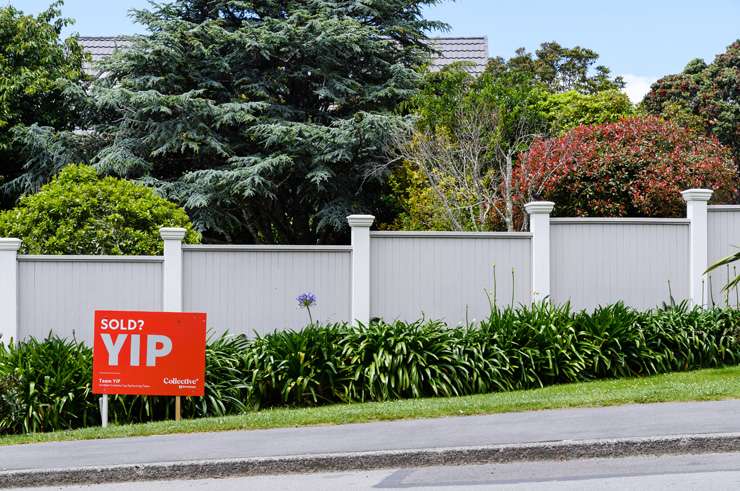Possible policy changes made by the next Labour leader or a potential new government later this year will have a bigger impact on property prices than the Prime Minister’s shock resignation, real estate experts say.
Prime Minister Jacinda Ardern’s announcement today that she will step down both as Prime Minister and the leader of the Labour Party no later than February 7 is expected to have no immediate impact on the country’s sluggish property prices.
But should property investors take her resignation as a further sign that National could be in power after the October election, then landlords might go on a buying spree before then and create more competition for properties.
John Bolton, founder of Squirrel mortgage brokerage said the news, which he feels considerably increases the likelihood of a National-led government after October's election, will be positive for the housing market.
Start your property search
"It won't change interest rates or inflation, they're the biggest drivers of the market, it won't have an impact,” he says.
"But property investors will be sleeping better. It won't change the market for first-home buyers and it won't change what Adrian [Orr, Reserve Bank governor] does with interest rates.
"The removal of tax deductibility will be under National. They've said that they will repeal that, and it's been a major issue for investors.”
CoreLogic chief property economist Kelvin Davidson said if Ardern’s resignation is taken as another sign that National could win the election and reverse some of the tax deductibility rules hampering landlords, then investors could start buying houses “before everybody else wakes up to it”.
“If that becomes the scenario they start to expect, then they may start to buy sooner because they think ‘OK that’s going to help property returns longer-term, I better try and get in before everybody else does’.”

A for-sale sign in Wellington. The housing market usually goes quiet in an election year but will the prime minister's decision to go early change buyer and seller appetites? Photo / Getty Images
However, Davidson didn’t think a new government would make much of a difference to owner-occupiers because National’s housing policy announced so far is more focused on landlords.
“I think we are looking at further falls in house prices for at least the first half of this year so I suppose what a potential change in government and potential tax changes do is just make it more likely. What we really need to see for house prices to stop falling is mortgage rates [to] stop rising – I think that’s the key driver.”
However, some property owners – particularly investors – are already taking Ardern’s announcement as a positive sign.
Sharon Cullwick, former executive officer of the New Zealand Property Investors Federation, said property investors are feeling optimistic.
"Already I've heard on the chat groups, that hopefully it'll be great news. They [Labour] made so many changes so landlords were punished, and it's the tenants who have suffered.
"Rents have gone up, and sure, there are warmer, dryer houses but there's less of them.
"National will have the higher chance [of winning] and let's hope they change the bright-line test back to two years and stop the gradual introduction that was removing interest deductibility. Capital gains tax is not such a big thing as property traders pay income tax on their trades anyway, it would only affect personal property. Ring-fencing [of property investments from other businesses] is likely to get taken away."
Martin Cooper, owner of Harcourts Cooper & Co agencies on the North Shore and Rodney, said there was already a "fair amount of rejoicing" in his circle and a buzz was emerging.
His list of impacts the Labour Government had on the property market, particularly investors, is long: "The relentless persecution of ma-and-pa investors; the threat of capital gains tax; the change of the bright-line rules; banning of foreign buyers; the empowerment of tenants over landlords; the description of ma-and-pa investors as rampant speculators.

Martin Cooper, owner of Harcourts Cooper & Co, said: “One resignation doesn't change these problems.” Photo / Ted Baghurst
"The property industry has had more than its fair share of beating up. One resignation doesn't change these problems, a whole administration needs to change."
Of immediate concern, Cooper said, was the traditional slowdown of the housing market for the three months before the election, which he has seen every election cycle in his 40 years in business.
"When people see uncertainty, they pause and wait."
But Infometrics CEO Brad Olsen said the prime minister’s resignation would not have a direct impact on the property market, adding it would be a different story if it was the governor of the Reserve Bank who had instead resigned.
“Put it this way, you didn’t see property prices that changed in either direction when Jacinda Ardern became leader of the Labour party and then prime minister – over time there are policy changes – so I think people if they are looking at a change in the PM would be more interested in any big policy changes under either of the major parties.”
He also warns people against getting too ahead of themselves.
“If I was in the property market, I would be reluctant to hold out 10 months for something that may or may not change there. When you’ve got house prices that have currently fallen by their most in recent history, what is right in front of you should be a lot more important to the property market and how the property market is shaped in coming months than an election that is still quite far away."
Lodge managing director Jeremy O’Rourke said the changes Labour had made around tax deductibility had seen a shift from long-term rentals to Airbnb's and had also put a greater focus on new over existing properties.
He agrees that any impact on the property market will have more to do with a change in government policies and he will be watching what, if any, changes the new Labour leader makes.
This could include changes to housing policies, but also immigration policies and what is being done to let more people into the country.
Property Brokers general manager of property management David Faulkner said most people he speaks to will not be surprised by the move as they did not expect Ardern to win the next election.
“Personally, I think this is the best thing Labour could do in terms of trying to win the next election because I think I don’t think she had the energy to do it again.
“This is probably the best chance Labour has got.”
If interest rates start to drop and inflation gets under control, then the mood of the nation might change for the better, he said.
“So, if Labour looks like it could win then investors may hold back and that’s because of the interest deductibility. I think if the prospect of National winning looked more likely the closer we got to the election and prices probably bottom out, investors who have very little debt might look to go back in.”
ANZ chief economist Sharon Zollner said there was still too much uncertainty to make an informed call on what the impact could be.
“You need to know who the new person is and what their policies and priorities are and at the moment that is completely unknown.”
- Additional reporting by Catherine Smith


















































































